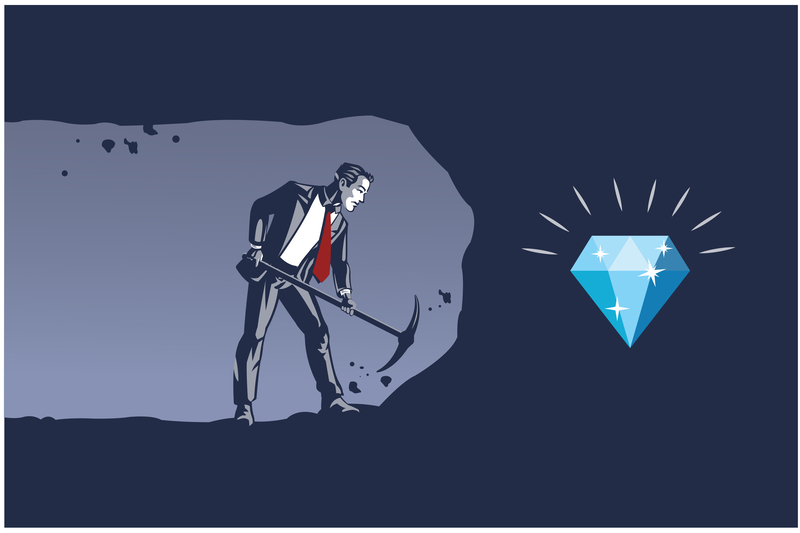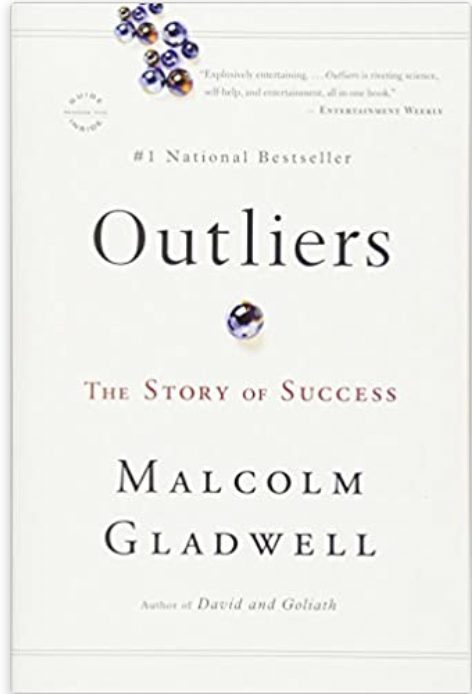Gray Matter and Grit

GM&G — gray matter and grit — are the ingredients that combine to make all the successful fish big and all the ponds small. Tweet

Highlights
All gray matter and no grit may be smooth, but smooth isn't all you need to succeed.
Sometimes, success is something you just grind out, but for that, you need grit.
When assessing a talent I am mindful of GM&G. Gray matter and grit.
Gray matter matters. What’s in between your ears matters. The skills necessary to balance a checkbook only scratch the surface of what is required to read, let alone run a profit-and-loss sheet. And it’s a different sort of complexity to pass a CPA exam, or do the taxes of a company operating in multiple states, countries or regulatory regimes. If you find yourself needing this type of help, you better call Marcum.
A wise man knows his limitations. That’s why I gave up doing brain surgery and avoided signing major-league contracts. It’s awful to find yourself in mental waters that you are unprepared to navigate. It’s called Mismatch Theory. Success in life is about getting into ponds where you can swim and flourish.
Success in life is about getting into ponds where you can swim and flourish.
We think of someone crushing it when they are a big fish in a small pond—a stand-out without many competitors. If you happen to be such an outlier in a math department at MIT, you are pretty fucking special. When it comes to picking a school, a job, or a relationship, it is very important not to find yourself elevated beyond the level of your innate competency.
The SAT is a useful predictor of competency. Used properly, it guards against mismatching. With an excellent math or verbal score, you probably have the stuff to swim in Stanford or MIT; not so excellent, you may find yourself knee-deep in community-college waters.
Getting into the right pond is everything. There is an old joke: What do you call a med-school student who graduates last in his class? Doctor. Mismatch theory points to limits and the consequences of exceeding them.
How many of your friends go to a prestigious school with the idea of becoming a doctor or a researcher in one of the STEM fields and gets crushed by the culling biology, chemistry or advanced statistics classes? How many doctors, biologists, accountants were never minted because they went to a school that was mismatched to their capacity. The answer is too many, approximately.
The school does care. So, instead of becoming a doctor you become a psychologist. But you very well could have achieved your ambition had you picked a school where your gray matter was matched to the depth and size of the academic pond that invited you in.
Grit matters—and the good news for all is that it matters more than gray-matter. IQ is a predictor of success but it does not guarantee it. A genius without grit is a wasted mind, and probably an obnoxious person. While genius is rare, wasted genius is not.
After you’ve decided that person in front of you has the gray matter required, look for grit—and, if you don’t see it, pass on by and keep on looking until you find it. There is a lot to be said for the grit required to get into a Harvard or Yale. But based on my own experience, I am not impressed with the work ethic of grit-succeeders. They make nurture a lord of the manor, an entitlement that makes once-talented high schoolers unbearable, and as elite leaders, they have led us into a golden age of incompetence. Unless you are in a STEM field, you graduate from many of these places a less-impressive individual than when you walked in. The cynical truth of the humanities at the elite level: The teachers pretend they teach, you pretend you learn, you get your ticket punched so you can pretend to teach others and everyone reaches the end of the road diminished by the experience.
♠

Bobby Axelrod (Damian Lewis).
I am watching Billions and found the best example that I can give of the sublime marriage of gray matter and grit is a character in the series: Bobby Axelrod, played by Damian Lewis. He’s a super-quant hedge-fund manager for fictional Axe Capital, a master of the universe. Bobby has a stand-out intellect—that big fish-small pond variety of super smart.
At the outset of the series, an aristocratic-looking Asian gets his moment to impress the boss, laying down a Harvard ticket and topping it with a Stanford credential. He discovers too late that the smartest guy went to Hofstra. The good news is that the Harvard-Stanford guy had more to him than gray matter. He worked every day in his family’s grocery store stocking shelves. It turns out he too had what Axe Capital requires—GM&G: Gray matter and grit.
Malcolm Gladwell is his book Outliers shows that gray matter and grit are locked at the hip. Outstanding gray matter is usually always coupled with outstanding grit. The ten-thousand hours theory, which holds that it takes ten thousand hours of practice to gain and demonstrate mastery. It turns out that prodigies, like Mozart, the Beatles, or David Boies, work very hard, proving the truth behind the old adage: “My luck improves the harder I practice.”
I threw in a lesser-known outlier, David Boies, into the mix. Boies is a top-of-the-food-chain lawyer who has argued and won many cases before the Supreme Court, attributing part of his success to the fact that he is dyslexic. Boies probably put in twenty thousand hours. He knew that he needed something special to help him grind his way to the top of his profession. That is the grit response of recalcitrant gray matter.
Unfortunately, nature is not as egalitarian we would like. We don’t come into this world with blank slates and with similar cognitive and physical aptitudes. Fortunately, nature’s distribution curve has a chubby middle.
But the secret to success, regardless of natural endowments, is pushing yourself to your level best. How do you know what your level best is? Push yourself to your limit, then grit it out to the next level. You study hard. You put in the time. You go through the drills. If you’re a salesman, you get on the phone and make some calls. The path to accomplishment—and its fruits—are blood, toil, tears and sweat.
And for those who take this route, there is a silver lining. It turns out that 10 percent more effort results in a four-fold benefit. This might explain why your colleague gets paid more. It’s not luck. It’s grit and grit carries its own reward.











